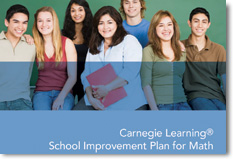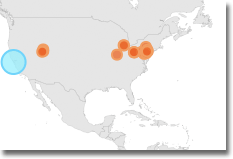Quasi-experimental Design Used to Build Evidence for Adolescent Reading Intervention

A study of Jamestown Reading Navigator (JRN) from McGraw-Hill (now posted on our reports page), conducted in Miami-Dade County Public Schools, found positive results on the Florida state reading test (FCAT) for high school students in their intensive reading classes. JRN is an online application, with internal record keeping making it possible to identify the treatment group for a comparison design. While the full student, teacher and roster data for 9th and 10th grade intensive reading classes were provided by the district, JRN—as an online application—provided the identification of the student and teacher users through the computer logs. The quasi-experimental design was strengthened by using schools with both JRN and non-JRN students. Of the 70 schools that had JRN logs, 23 had JRN and non-JRN intensive reading classes and sufficient data for analysis.
Download the 2010 report here.





